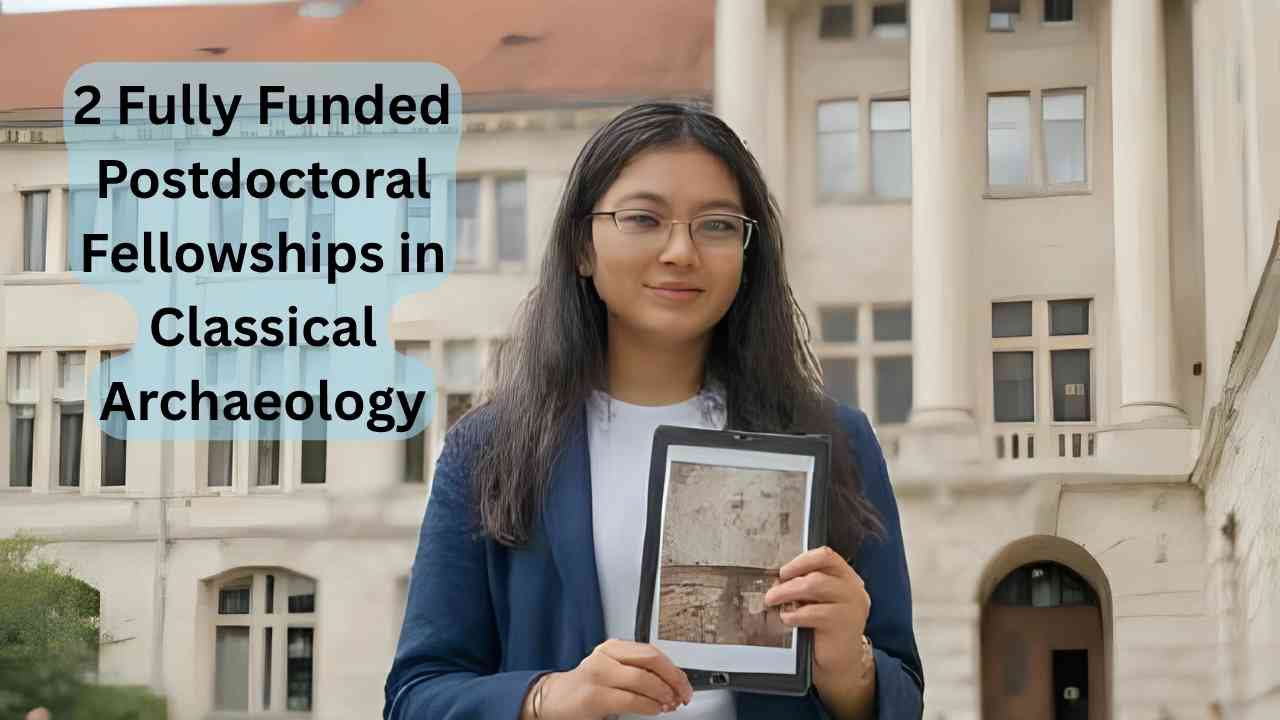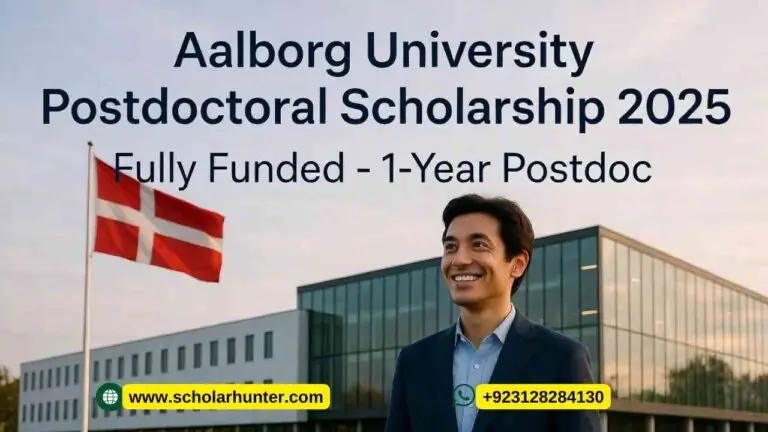Are you searching for prestigious postdoctoral fellowships in Classical Archaeology that offer full-time research opportunities in Europe? Aarhus University in Denmark is currently inviting applications for two exceptional postdoctoral positions within its renowned LOCIS research project. These fellowships provide a unique chance to explore ancient visual culture and the archaeology of the Eastern Roman provinces and the Near East between 100 BCE and 500 CE. If you’re a passionate researcher looking to advance your academic career in a collaborative and intellectually rich environment, this opportunity is tailored for you.
These fellowships offer fixed-term full-time positions in one of the most advanced archaeological departments in Europe. If you have the experience, passion, and drive to explore the Eastern Roman provinces and Near Eastern archaeology from 100 BCE to 500 CE, then this blog post is your guide to success.
✅ Quick Overview of the Postdoctoral Fellowship
To help you digest the essential details, here’s a quick summary in table format:
| Feature | Details |
|---|---|
| University | Aarhus University |
| Department | School of Culture and Society – Classical Archaeology |
| Program Type | Postdoctoral Fellowship |
| Fellowship Duration | Fixed-term, full-time |
| Research Project | Locally Crafted Empires (LOCIS) |
| Focus Area | Classical Archaeology, Ancient Visual Culture, Eastern Roman/Near East |
| Start Date | 1 January 2026 |
| Application Deadline | 1 September 2025 |
| Location | Denmark |
| Eligible Candidates | All nationalities |
| Number of Positions | Two (2) |
| Access Mode | Online application |
| Official Application Link | Apply Now |
Why Choose Aarhus University for Your Postdoc?
Aarhus University ranks among Europe’s top research institutions. The School of Culture and Society provides an inspiring academic atmosphere, equipped with high-end resources for archaeological and cultural studies.
Key highlights:
- Access to internationally renowned faculty
- Opportunities to collaborate on groundbreaking research
- A multicultural and intellectually stimulating environment
- Denmark’s strong support for academic innovation and freedom
“Aarhus is not just a city—it’s an intellectual hub. Being part of the LOCIS project means becoming a builder of knowledge in the ancient world.”
🧭 Fellowship Focus: LOCIS Project Objectives
The Locally Crafted Empires (LOCIS) project investigates the role of local elite networks and visual expressions in the Eastern Roman provinces and the Near East between 100 BCE and 500 CE. These fellowships are focused on:
- Classical Archaeology and ancient visual culture
- Regional research centred around West Asia
- Creating and curating databases, visual catalogs, and publications
- Organizing academic conferences and workshops
🧾 Eligibility Criteria: Are You the Right Fit?
To be considered for these Postdoctoral Fellowships in Classical Archaeology, applicants must fulfil the following criteria:
Educational Qualification
- A completed PhD in Classical Archaeology or a related discipline
Academic Competencies
- Strong expertise in ancient visual culture
- Proven research experience focusing on West Asia (100 BCE – 500 CE)
Publications
- Submission of up to two academic publications with the application is mandatory
Language Proficiency
- Proficiency in academic English (spoken and written)
- Reading ability in German, French, and Italian
Personal & Professional Skills
- Excellent organisational, interpersonal, and time-management skills
- Strong collaborative abilities for working on shared databases and joint publications
📋 Required Documents for Application
Your application must include the following documents in English:
- Motivation Letter
- Curriculum Vitae (CV)
- Degree Certificates
- Complete List of Publications
- Up to Two Academic Publications (for assessment)
Please make sure your documents are comprehensive, clearly formatted, and tailored to highlight your relevance to the LOCIS project.
💡 Tips for a Successful Application
To stand out from other applicants, follow these expert tips:
- Customise your motivation letter for the LOCIS project
- Showcase your research synergy with the project themes
- Emphasise your teamwork and academic communication skills
- Make sure your academic publications reflect your expertise in ancient visual culture
🌍 International Applicants Welcome!
Aarhus University strongly encourages applications from both domestic and international candidates. Denmark is a vibrant, research-friendly country with a rich academic heritage and an exceptional quality of life.
“Whether you’re from Asia, Africa, Europe, or the Americas, if your research fits the criteria, Aarhus University welcomes your contribution.”
🖥️ How to Apply – Step-by-Step Guide
Follow these steps to complete your online application before the deadline:
Step 1: Prepare All Documents
Make sure all required documents (motivation letter, CV, publications, etc.) are ready in PDF format.
Step 2: Visit the Application Page
Go to the official vacancy posting here:
👉 Apply Now Official URL
Step 3: Submit via Aarhus Recruitment System
Follow the application prompts carefully. Upload all documents in the requested order.
Step 4: Confirmation
Ensure that you receive a confirmation email after submission. If not, double-check your application status in the system.
⏳ Important Dates to Remember
| Event | Date |
|---|---|
| Application Opens | Already Open |
| Application Deadline | 1 September 2025 |
| Notification of Results | Expected by Nov 2025 |
| Fellowship Start Date | 1 January 2026 |
Set reminders to avoid missing the deadline!
🌐 Useful Official Links
📣 Final Thoughts: Don’t Miss This Career-Defining Opportunity!
The Postdoctoral Fellowships in Classical Archaeology at Aarhus University offer more than just a job—they provide a platform to influence the future of archaeological thought, visual culture studies, and academic collaboration.
If you are a motivated early-career researcher eager to delve into the rich history of the Eastern Roman Empire and West Asia, then this fellowship is your next significant step.
Apply now via the official URL before 1 September 2025 and become part of a global scholarly community working at the frontiers of ancient research.




